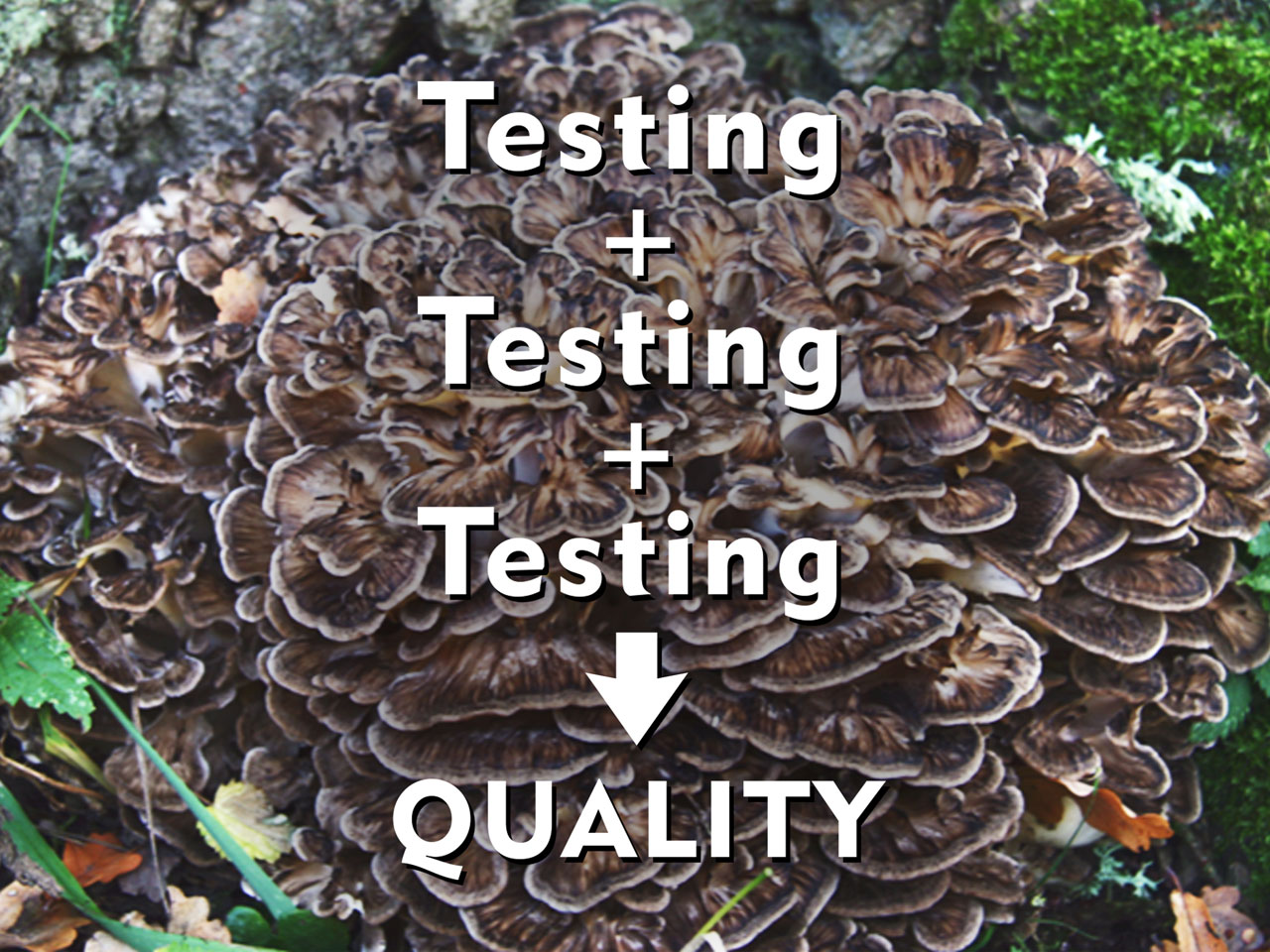Testing, Testing, and Testing
We all want and expect quality products. If it says vitamin C on the label, we want it to be vitamin C in the product. If it says Echinacea flower then it should be Echinacea flower, not root or anything else. And the same of course goes for mushrooms, if the product says it is Reishi mushroom then it should be Reishi mushroom. Not rice, right? It should be Reishi mushroom. Unfortunately this may not be the case, at least according to a recent independent study that found almost 75% of the Reishi products tested failed at being Reishi mushroom. 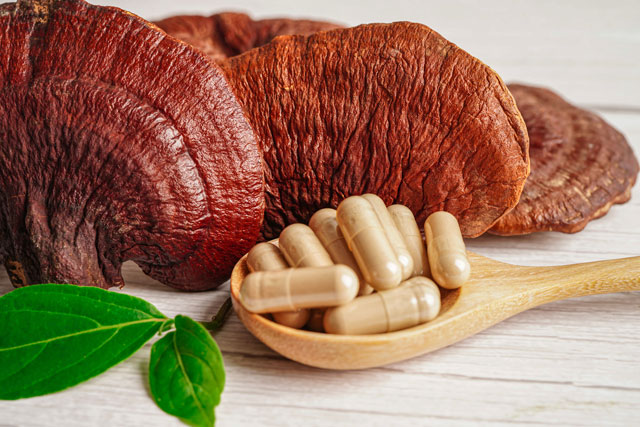 Thankfully, Mushroom Wisdom’s Reishi tested out as actual Reishi, something not surprising here because of the number of quality control measures we take to ensure you are getting what you expect, and what will provide you the health support you are looking for.
Thankfully, Mushroom Wisdom’s Reishi tested out as actual Reishi, something not surprising here because of the number of quality control measures we take to ensure you are getting what you expect, and what will provide you the health support you are looking for.
We are able to offer top quality for a number of reasons. It starts with how we grow our mushrooms. We grow our mushrooms in a manner that mirrors how they grow in nature, providing them the food (biomass) to grow on. We then properly extract the mushrooms to improve their bioavailability and strength. Next, we test, test, and test our materials and products to ensure that they meet our and your standards. So when you chose Mushroom Wisdom’s Reishi, or Coriolus or Maitake you can be assured that this is what you are getting in every bottle.
Mushroom Renaissance
Over the last 5 to 10 years we have seen a dramatic growth in the interest in functional mushrooms. With this rapidly growing interest has come a corresponding dramatic increase in the number of companies now offering functional mushroom products. As it is with any “hot” ingredient or category, concerns have risen, justifiably so, regarding the quality of such products. It seems that every week I come across yet another online seller of functional mushrooms. (a side note here, Mushroom Wisdom has been providing mushroom supplements for 30 years now) And while it is great to see all this interest in mushrooms finally happening, it can also attract individuals or companies that see dollar signs. We have also seen a significant jump in smaller companies selling mushrooms. I want to be clear, I am not suggesting that they are inherently bad companies or products, but, as we saw in the Reishi study, it’s possible they may not have the resources to do all the testing that is required to ensure quality products. What tends to happen in most of these situations is that companies unable to do the testing themselves have to rely on the supplier to provide this material. Now it would be wonderful if all suppliers had their hearts in the right place, we do know that some may be operating in a more self-serving manner. This is why Mushroom Wisdom users the same sourcing for our raw materials and why we go through elaborate and time-consuming testing procedures.
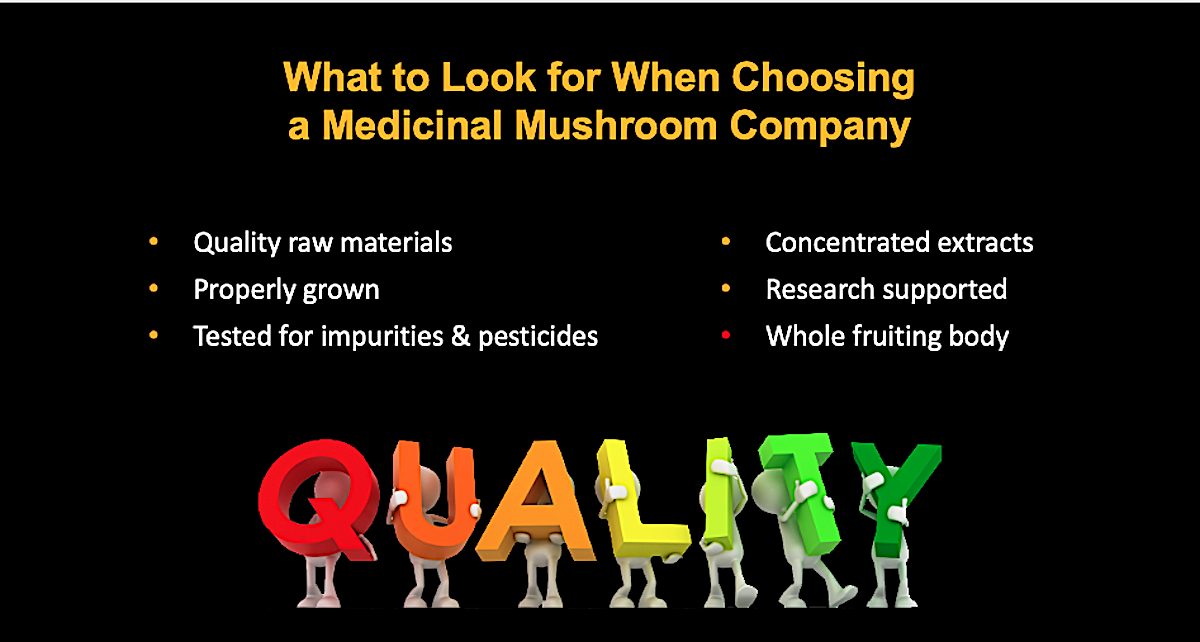
Testing
Why is testing so important when it comes to functional mushrooms? Well the Reishi study clearly indicates that there is a need for testing. But the basic needs for testing start off with the absolute need to properly identify the mushroom used. The fact that we are growing our mushrooms of course gives us a lot of control over this since we are not relying on numerous raw material providers. Still, to make absolutely sure, we first test the products for proper identification, making sure it is the correct mushroom. The other essential element for testing is simply looking for what is supposed to be there (e.g. triterpenes in Reishi) and looking for what is NOT supposed to be there (e.g. lots of starch). Testing mushrooms is not something that can be done by just looking at it, or smelling or tasting it, it requires sophisticated testing methods to know for sure.
There are a number of testing procedures that we use to fully analyze the materials. Each testing procedure has its strengths and targets which is why we use several different techniques. Each test for each mushroom has standards that need to be matched or met. We go to such elaborate steps because it is all about identity, safety, and quality. The primary testing techniques we use are HPLC, TLC, PCR (polymerase chain reaction), microfluorometry, color reaction, heavy metals, and disintegration time. Here’s a brief look at what some of these tests are and what they can do.
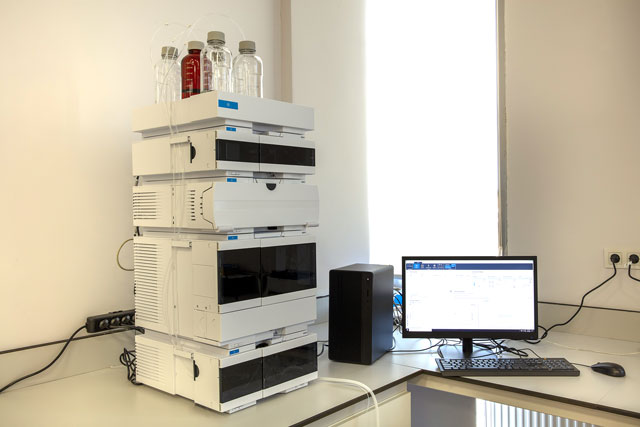 HPLC, high performance liquid chromatography (used to be known as high pressure liquid chromatography) is key to the testing and yields some of the most important details. This process can tell you how much of a constituent is in the tested material as well as help identify the various compounds. This is a useful tool for analyzing compounds for a range of constituents. This is what can help us know if we have what is supposed to be in the mushroom and that we don’t have what is NOT supposed to be in the mushroom. Sticking with our Reishi example from earlier, it is an effective tool for measuring key constituents like the terpenes in Reishi.
HPLC, high performance liquid chromatography (used to be known as high pressure liquid chromatography) is key to the testing and yields some of the most important details. This process can tell you how much of a constituent is in the tested material as well as help identify the various compounds. This is a useful tool for analyzing compounds for a range of constituents. This is what can help us know if we have what is supposed to be in the mushroom and that we don’t have what is NOT supposed to be in the mushroom. Sticking with our Reishi example from earlier, it is an effective tool for measuring key constituents like the terpenes in Reishi.
TLC, thin-layer chromatography is an analytic technique to test for purity and is widely used to identify compounds. This highly sensitive technique serves as a quick (about 30 minutes) and inexpensive accurate way to determine how many constituents are in the test material.
Microfluorometry is used to study the biochemical and biophysical properties of cells. It involves a process using microscopy to examine cell components that have been tagged with fluorescent molecules. MW uses this to test for vitamin C.
Testing for Key Concerns
So we have gone through some of the more technical tests, but there are three areas that are likely key concerns for you when buying a product, whether it be a mushroom or some other supplement. The first is heavy metal testing which has become a growing concern, an issue in our ever more polluted world. Heavy metal testing is doubly important for mushrooms since they are, what is called, bioaccumulators. Mushrooms can accumulate heavy metals (and pesticides but more on this later) depending upon the environment they are grown in, which is why we grow our mushrooms in a pristine, protected environment. They can also accumulate heavy metals from the substrate they are grown on. This is another benefit to growing our mushrooms on their natural food source rather than rice, which is widely used. There is a growing concern about arsenic levels in rice nowadays. 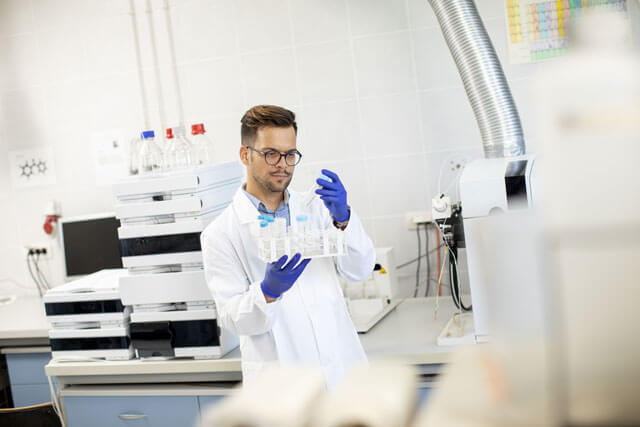 The mushroom’s ability to “chelate” these toxins is one of the reasons they are used to clean up toxic environments in a process called mycoremediation. These heavy metals include arsenic, cadmium, lead, and mercury and are very damaging to the brain, heart, kidneys, and bones.
The mushroom’s ability to “chelate” these toxins is one of the reasons they are used to clean up toxic environments in a process called mycoremediation. These heavy metals include arsenic, cadmium, lead, and mercury and are very damaging to the brain, heart, kidneys, and bones.
When we take a supplement it is necessary that it breaks down quickly, so the body can utilize the active compounds and not let them pass through the gut unutilized. To ensure our supplements break down in time we do a test for disintegration time so that we know the constituents will be available to your body.
As mentioned previously, mushrooms can accumulate various compounds from the environment they are grown, including pesticides. Keep in mind that just because something is grown organically doesn’t mean it is free of pesticides. The fields around it may be sprayed and winds could easily carry the pesticides into organic fields. So to make sure our products are free of pesticides they are tested using a USP standard that tests for 72 different pesticides.
Quality & Safety
These aforementioned tests are not one-off tests, we do them on every single batch of mushrooms that we produce… every single one. All this testing is for you, identifying the mushroom, the safety of the material, and the quality of the product, all to support you on your path to radiant health.* We want you to know that when you choose our Super Reishi, or any other of our functional mushroom products, that you are getting the actual mushroom that you chose and that it is safe and bioavailable to you. In the end, all this testing is about offering you a quality product that you can feel comfortable with using and in sharing with your family.
